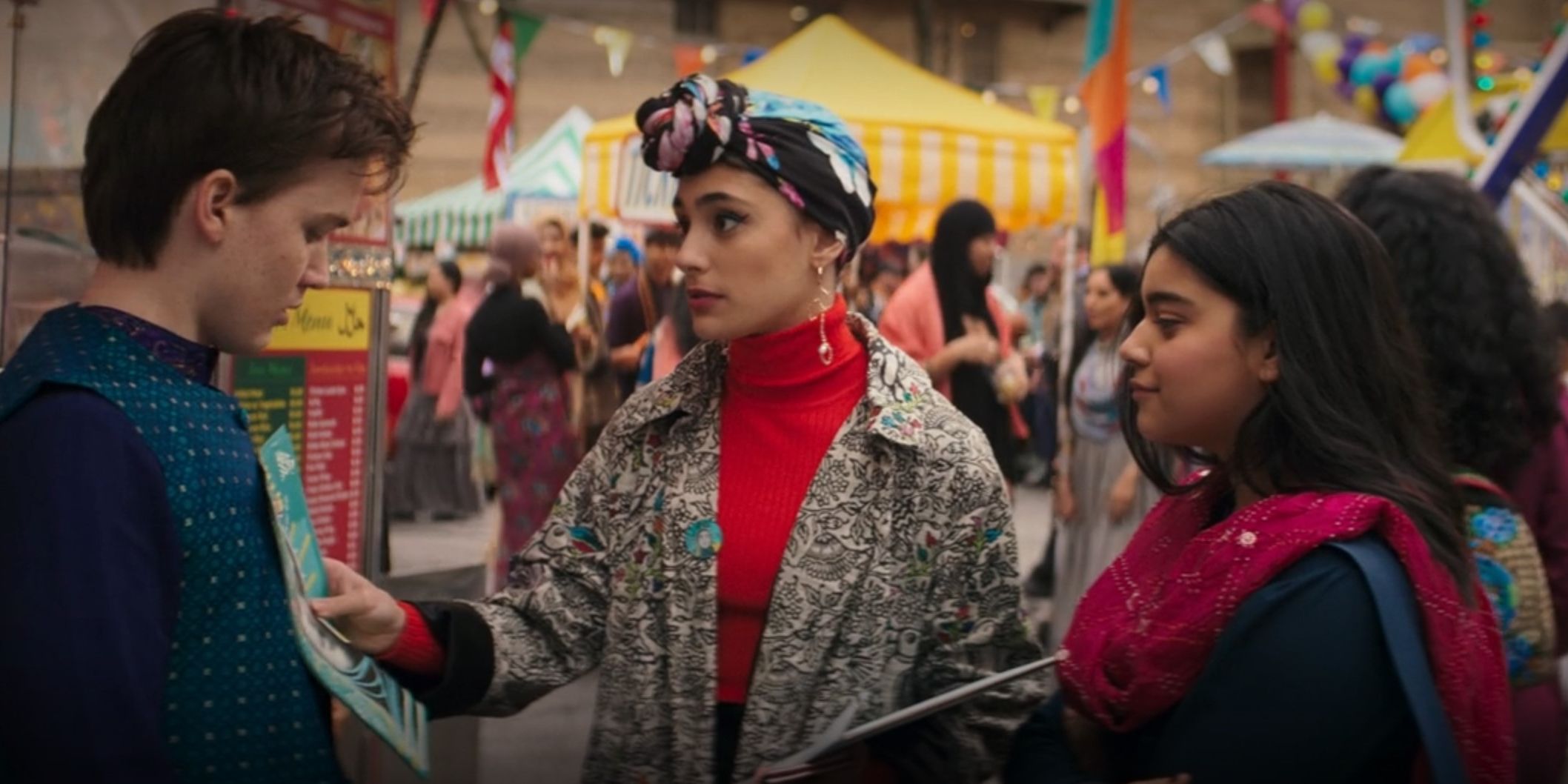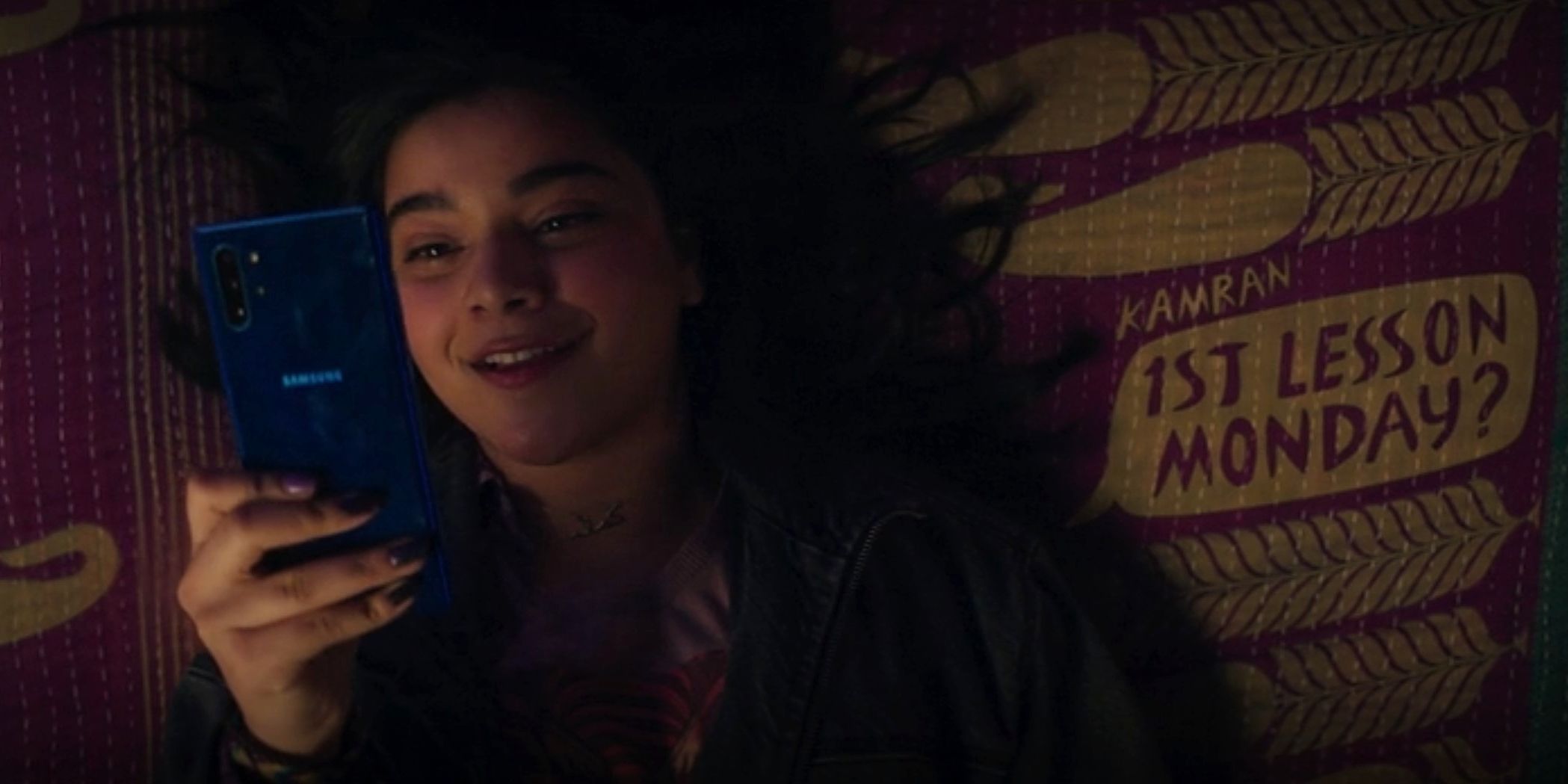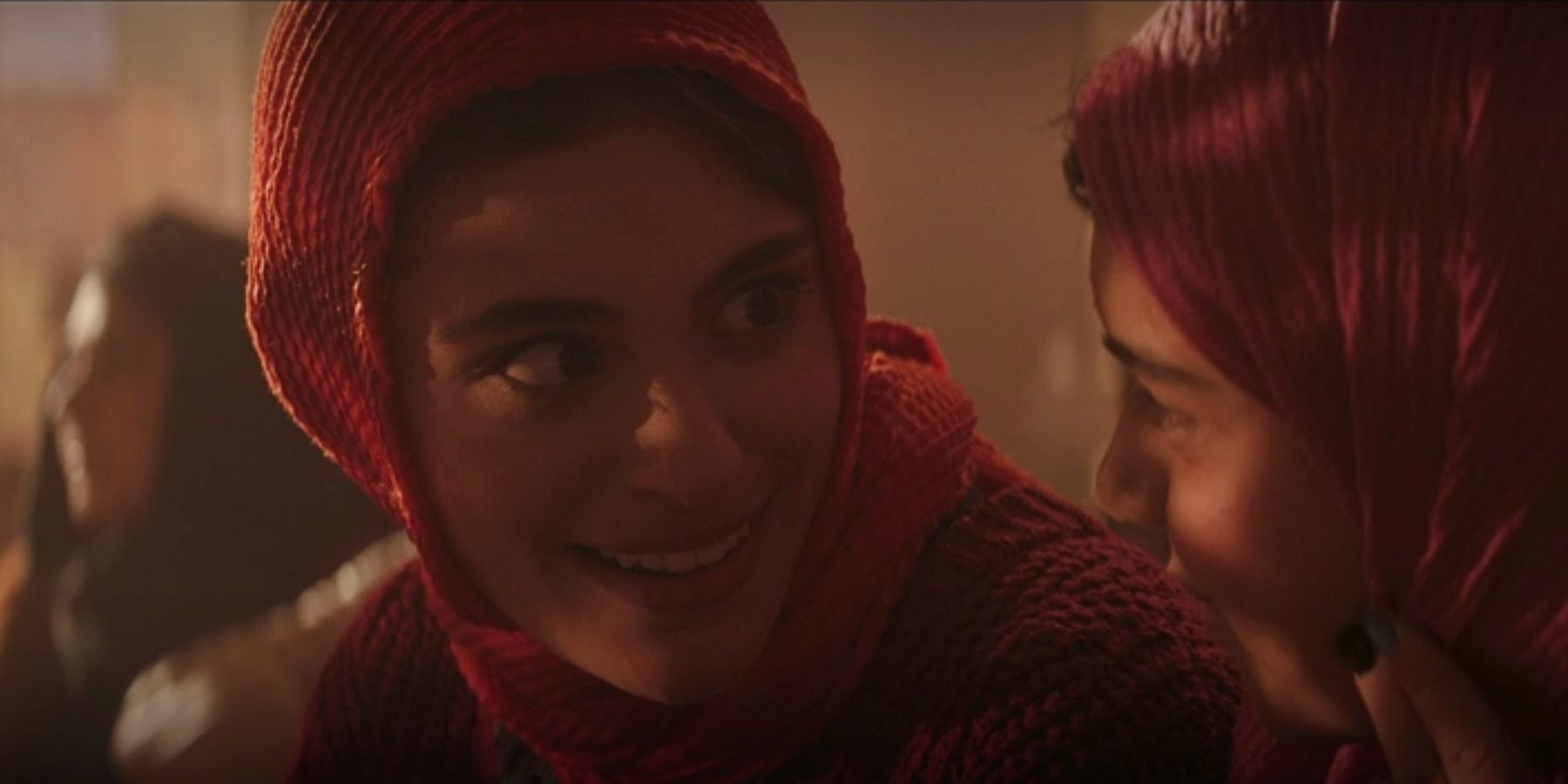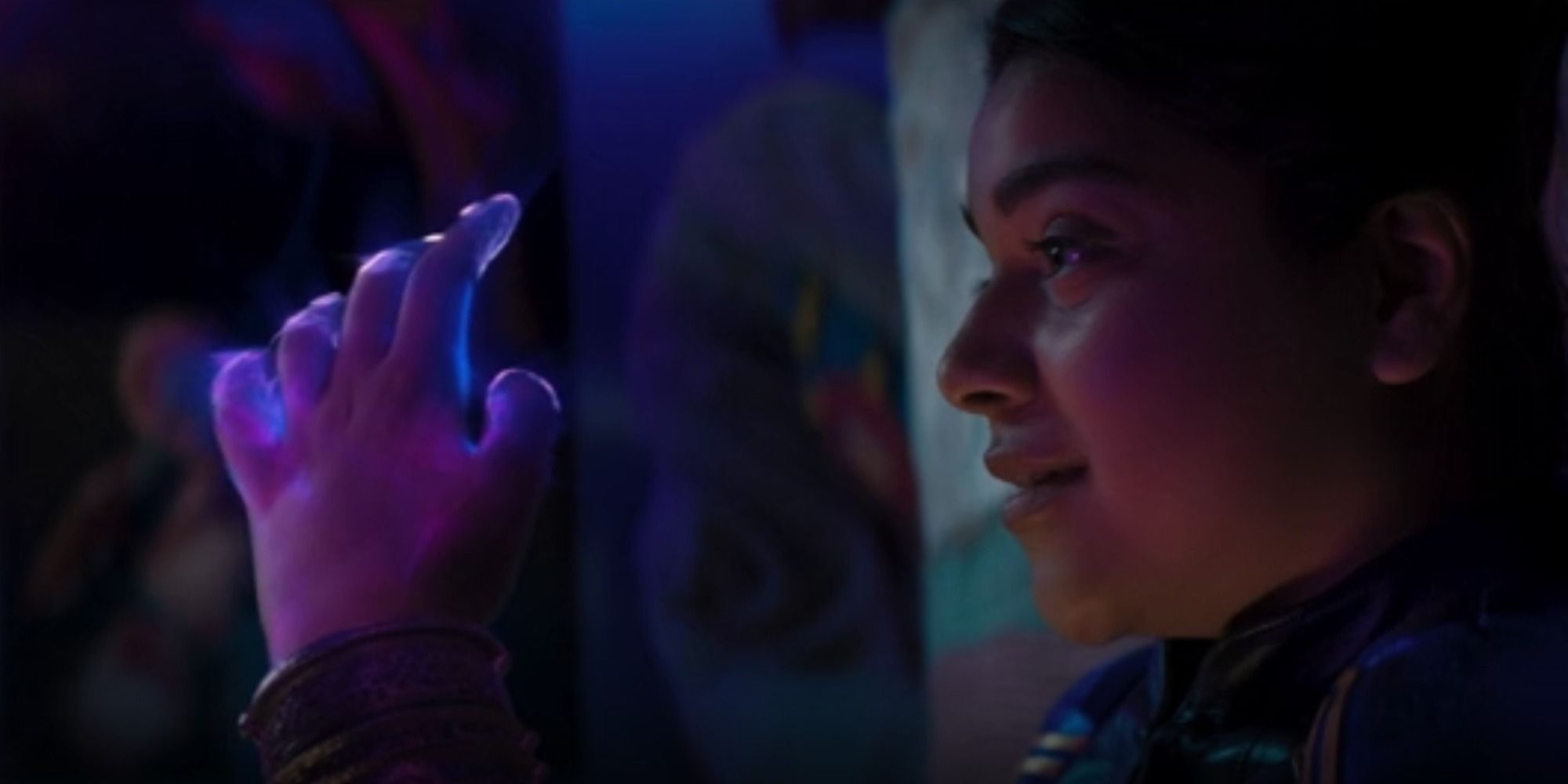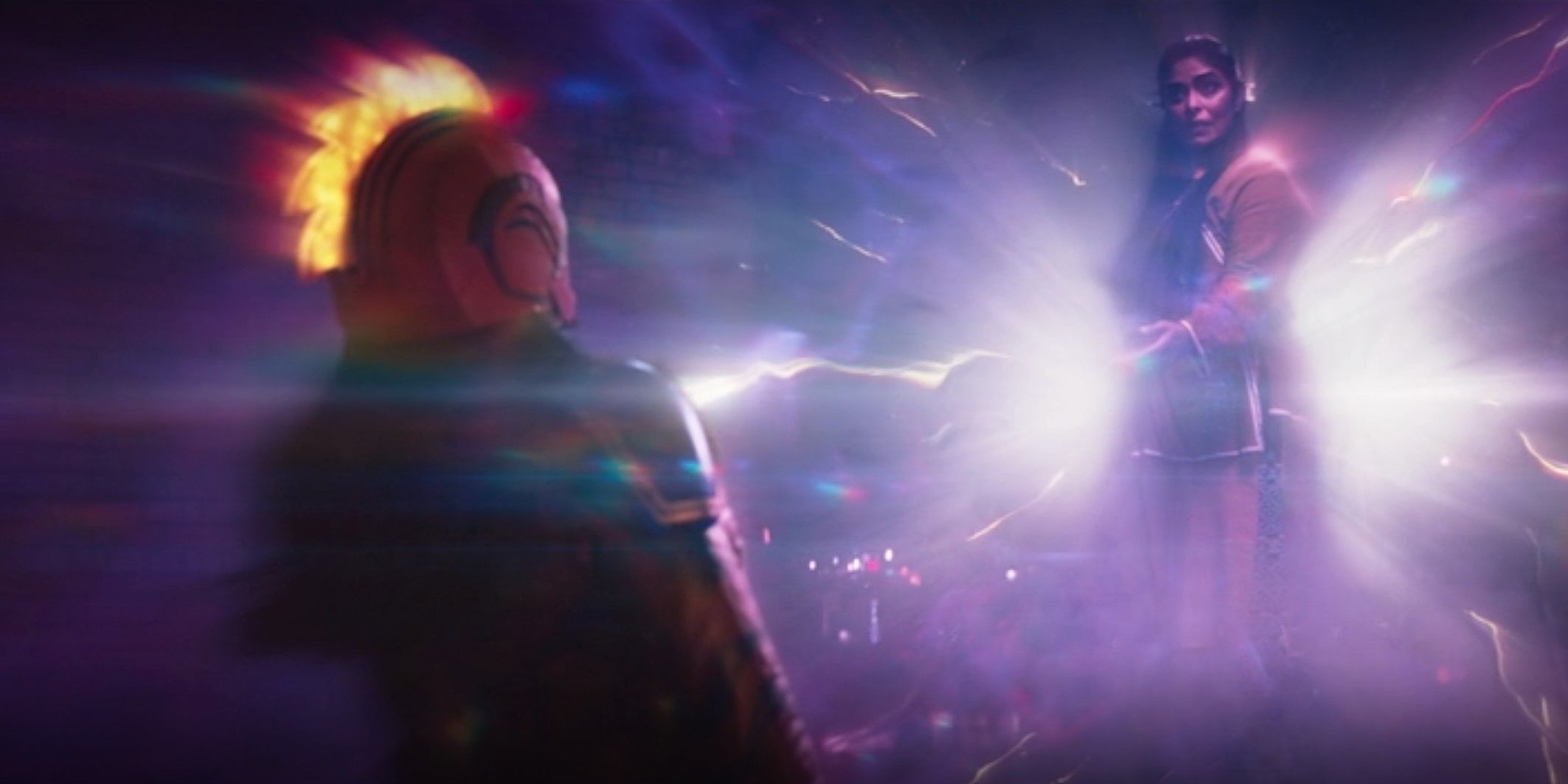Ms. Marvel has a really tough mission to carry out for the MCU, one that far exceeds what would normally be expected out of a common teenager, and yet somehow, the latest superhero to hit Disney Plus is doing a decent juggling her two main objectives: introduce a relatively unknown character and break through as Marvel’s first Muslim superhero.
That very statement sounds quite simple, nevertheless, it should serve as a reminder that the MCU doesn’t exactly have the best track record serving its women, as even all the star power held by Scarlett Johansson saw Black Widow shunned to being Disney Plus’ first try at a dual streaming and theatrical releases and the legal drama that then followed. That just leaves the now-villainous Scarlet Witch, whose fate is now up in the air, and Kamala Khan’s own idol Captain Marvel, so just how is Ms. Marvel navigating these waters while also exploring Islamic culture?
Growing Up Halal
From its very first episode, the series has looked to establish tropes that will surely hit home for many South Asian or Muslim people that grew up with rather conservative parents, especially by modern Western standards. Ms. Marvel is hardly the first production to take a crack at this, however, it's attempting to do it in a completely different fashion as it still has to make itself a part of the larger MCU.
Ms. Marvel is a relatively new creation, with the first issue featuring Kamala’s story arc only surfacing in Captain Marvel comics in 2013, meaning she’s as much a byproduct of an increasingly diverse America as Hydra can be considered a spoil of the West's triumph’s in World War II, or Omega Red a relic from the fall Soviet Union and the fall of the Berlin Wall. Nonetheless, Kamala represents a new spin, as the 2010s sought to bring American Muslim characters under a new light that could erase the cultural effects of the United States' war against radical Islamic terrorism, with the show even packing a reference to FBI surveillance to make sure viewers don't forget about that.
American Muslims, be it those of Pakistani descent or any other, have been in the country for decades and the MCU is a perfect pop culture avenue to portray traditions from these families in a way that’s highly relatable. The reason why Ms. Marvel nails representation spot on is that Kamala’s teen struggles are exactly like those experienced by people that were raised under very similar house rules.
Superhero origin stories are often born out of horrific accidents, acts of God, destiny or some magical moment, and yet the first taste of Kamala’s powers comes while she’s sneaking out only to then get a stern talking from her overprotective mother. More than anything, Ms. Marvel represents the conflict of younger generations to live up to her family’s traditions and expectations, while carving her own path in life, in this case, as the new cosmic girl joining The Marvels.
Switching Up Ms. Marvel’s Origins
One of the biggest changes from the Ms. Marvel comics, when compared to her MCU incarnation, is that Kamala’s powers got a substantial rewrite, and although at first this was explained by Kevin Feige as simply adjusting the character so that she would fit better with the rest of the MCU, it’s also brought some nice story benefits. See, by ditching the Inhumans connection and the stretchy Mr. Fantastic type of powers, writers have been able to tie Ms. Marvel’s newfound abilities to her cultural origins.
Sure, there’s still a lot of explaining left to do, but the new mysterious character and mother to Kamala’s crush further drives the idea that Ms. Marvel’s heritage is crucial in defining who she is. That her grandmother’s bangles unravel her inner power is just one more payoff for her Pakistani background and upbringing.
This not only adds an extra layer of complexity to her character, but it also justifies the inclusion of cultural elements such as mentions to the Partition of India that resulted in her family’s country being created out of nowhere by the British empire, meaning Ms. Marvel also packs tiny history lessons for the uninitiated. The same goes for the few Urdu words being used throughout the show, like chalo or beta, references to Bollywood superstar Shah Rukh Khan, the gossipy Illumin-Aunties that symbolize the dread of being judged by one’s elders, Nakia's relationship with wearing a hijab, or the double standards that separate men and women at the mosque or back home.
These are all very real experiences for first-generation immigrants, their children, and people living in South Asian countries, which in turn evoke real emotions. Previously, Shang-Chi and the Legend of the Ten Rings did something similar, as the movie not only pays homage to Hong Kong cinema but to Chinese culture, despite it being in ways that China disapproves of, though the movie format didn't quite allow for the kind of exposition Disney Plus grants Kamala.
Every single reference or cultural easter egg in Ms. Marvel is thrown in to not obtrude the development of the main plot but to let character traits about Kamala and her friends give each cast member their own personalities. Ultimately, there’s only so much Ms. Marvel, a superhero teen comedy-drama can do for Islamic culture, but the fact that it’s doing it in the grand stage of the MCU as it crosses over with Marvel lore will please many out of the nearly 2 billion Muslims in the world.
Ms. Marvel is currently available on Disney Plus

